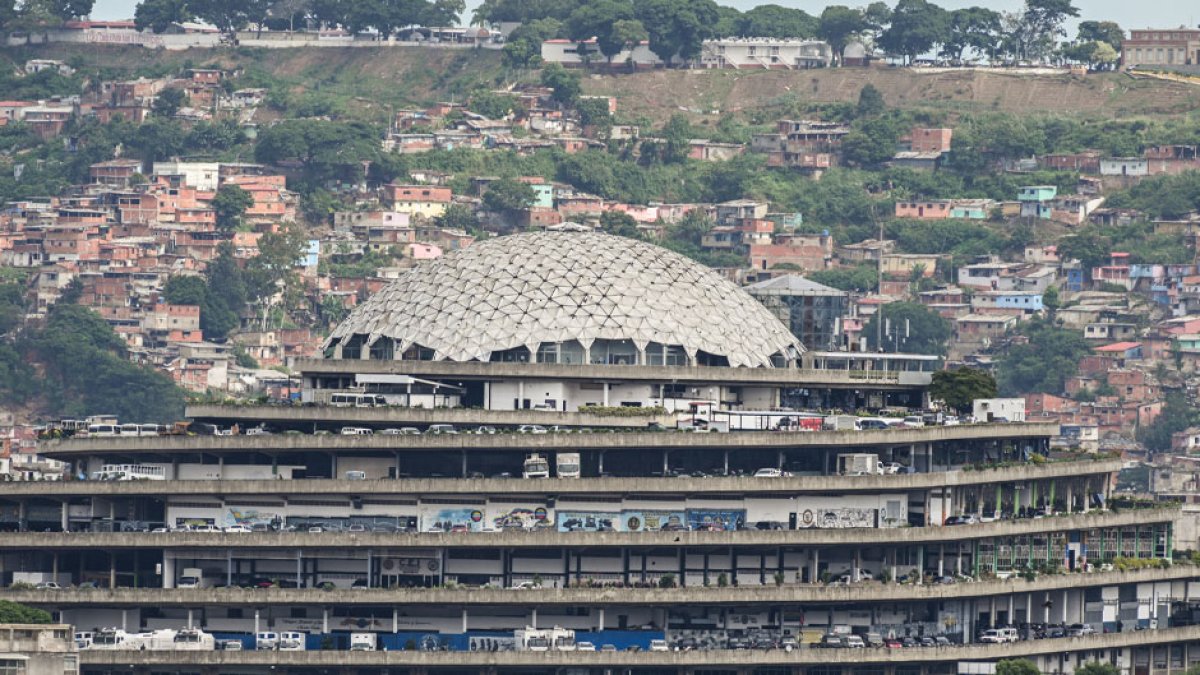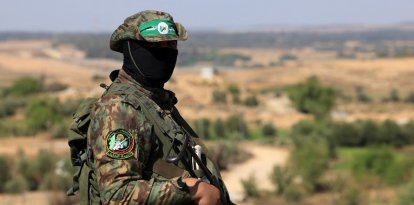'The closest thing to hell': Testimony of former Venezuelan political prisoners who were in El Helicoide, 'the largest torture center in Latin America'
Since 2014, more than 15,700 people have been taken prisoner for political motives under the Nicolás Maduro regime.

(Yuri CORTEZ / AFP)
Former Venezuelan dictator Marcos Pérez Jiménez created El Helicoide, in the heart of the city of Caracas, with the aim of it becoming the most modern shopping center in Latin America. However, the fall of his government in 1958 halted its construction. Now, 65 years later, the Chavista dictatorship turned it into the "largest torture center" in the region. Three dissidents who were held there told of the torture they suffered for opposing the socialist regime.
This is one of the few times in which victims have spoken on the record about what they suffered. These are the stories of Víctor Navarro, Dylan Canache (who was only 16 years old when he was arrested) and Diannet Blanco. The young people told Argentine outlet Todo Noticias how the dictatorship's officials subjected them to all sorts of humiliation simply for participating in demonstrations opposing Nicolás Maduro. They describe El Helicoide as "hell itself."
Dylan Canache was arrested in the early hours of Jan. 13, 2018, during a police operation called Operation Guarimba. Various government organizations have reported that there were several cases of minors whose human rights were violated for participating in opposition demonstrations. "It's the closest thing to hell here," said Canache.
"I lived in a low-income neighborhood in Venezuela, called Mamera, in the Parroquia Antímano district in Caracas. At that time, I was no longer participating in the protests. I had participated in 2017. I was 15 years old when I was in the protests," Canache explained. He was imprisoned from Jan. 14 to June 2, 2018. Currently, he remains on parole.
'They said they were going to rape me': Víctor Navarro's experience in El Helicoide
In the case of Víctor Navarro, it was not only an illegal arrest. The officials, he says, also threatened to rape him and his girlfriend after they were arrested for protesting against the dictator.
"They stole the things that were in my house. This is how I began to know the dimension of the monster that operates in Venezuela. ... I was simply asking where my mom was. They questioned me a lot, who I was, what I did, who financed me. My first day was very scary, not knowing what was going to happen to me. They threatened me and told me that they were going to rape who was my girlfriend at that time, they said that they were going to rape me, they said that there was an officer they called 'The Black One' who had a penis the size of my arm and that he was going to rape me," Navarro explained.
"El Helicoide is the largest torture center in Latin America. To be a political prisoner in Venezuela is to be a victim of the most atrocious torture, of the crimes against humanity that Maduro commits every day," Navarro added.
'Operation Knock Knock'
In the case of Diannet Blanco, her arrest was part of something that the regime called "Operation Knock Knock" ("Operación Tun Tun" in Spanish), which referred to the fact that the regime's henchmen arrived directly at the home of opposition members, without a court order, to kidnap them. Days before, she was designated as a "terrorist" by Diosdado Cabello, the Chavista regime's number two, on national television on the program Con el Mazo Dar.
"I was a victim of torture simply for participating in this protest process. It bothers the regime to do good, to do humanitarian work. My right to defend rights is criminalized. ... I have not committed any crime and my husband has not committed any crime for defending rights and demanding decent wages, demanding living conditions and working for the well-being of the community," said Blanco.
Crimes against humanity in Venezuela
In June 2018, Blanco was released on parole due to a pardon granted by dictator Nicolás Maduro. Currently, she is a human rights activist and provides information on these issues to young people from vulnerable communities in Caracas who have been detained so that they understand due process in their cases.
The Penal Forum organization, in charge of supporting and defending political prisoners in Venezuela, assured that since 2014, there have been more than 15,700 people who have been imprisoned for political motives in the country.
Nicolás Maduro's dictatorship has been under investigation in the International Criminal Court after the organization claimed that it had sufficient evidence to believe that crimes against humanity were committed in Venezuela.
"The ICC investigation focuses on alleged crimes against humanity committed in Venezuela since at least 2017, including deprivation of physical liberty, torture, rape and other forms of sexual violence, as well as politically motivated persecution," Human Rights Watch explained.

























